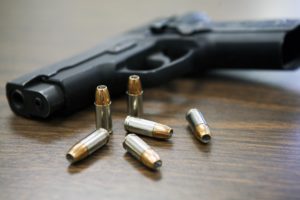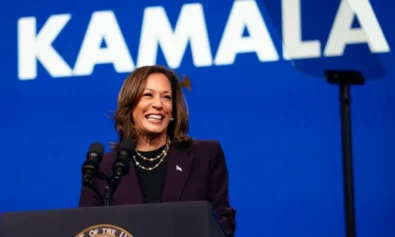
Wikimedia Commons.
African-American public health leaders are challenging the Centers for Disease Control and Prevention to take a stand on America’s gun violence epidemic.
Each year some 33,000 Americans die by firearms, whether by suicide, murder, accident or police intervention, according to the Brady Campaign to Prevent Gun Violence.
No group is hit harder by gun violence than African Americans. Homicide is the leading cause of death for Black men between the ages of 15 and 34, and accounts for 82 percent of gun deaths for all Black Americans.
Last week Alton Sterling and Philando Castile became the 122nd and 123rd African-Americans, respectively, shot and killed by police officers this year.
Dr. Swannie Jett, the African-American president of the National Association of County and City Health Officials believes the CDC and director Dr. Tom Frieden, have the clout to effect real change in the field.
“Tom Frieden has a platform, and he needs to use that platform,” Jett told CNN. “I’m sure [Frieden] values African-American lives and the African-American community, but I think there’s real damage in not taking a stand and effectively using his platform to reduce gun violence.”
The American Public Health Association’s executive director said the grossly disproportionate number of firearm-related homicides in the community make him feel like an “endangered species” as a Black man.
“It’s time to speak up,” Dr. Georges Benjamin said in an interview with the network. “The CDC is a trusted organization, and the white coat is a very powerful tool.”
The nation’s top public health official has led the CDC for the last six years, tackling Ebola, Zika, and the prescription drug epidemic among other major health crises but remains tight-lipped on the issue of guns.
A number of experts suspect Frieden’s silence is due to the power of special interests groups like the National Rifle Association.
The influential gun lobbyists convinced Congress members to block $2.6 million in funding for the federal agency’s injury prevention program back in 1996, the Los Angeles Times reported in June.
Mark Rosenberg, head of the National Center for Injury Prevention and Control at that time, told the newspaper the move was in retaliation for a 1993 article the center released on the dangers of firearms in households.
Researchers found that keeping a gun in the home was “strongly and independently associated with an increased risk of homicide”.
The budget cut and subsequent Dickey Amendment, which stated that none of the funds allocated to the injury prevention and control center may be used “to advocate or promote gun control” has successfully intimidated leaders out of devoting more resources to the subject.
“The result is that the CDC basically does nothing in gun violence research,” Rosenberg said. “If research on cancer were stopped for a single day, there would be a huge protest. But this research has been stopped for 20 years.”
The widespread problem of violence within and against the African-American community has become a hot button topic among health professionals in the wake of several high-profile police killings in the last few years.
As Atlanta Black Star reported, a group of Harvard researchers recently concluded that police violence against Black Americans should be recorded and treated as a public health epidemic.
In the Harvard Public Health Review, doctoral candidate Justin Feldman argued that public health agencies were in a unique position to resolve law enforcement agencies’ tendency to under report officer-involved killings, if at all.
“State and local public health agencies can remedy this problem by adding legal intervention to their existing lists of reportable conditions,” Feldman wrote. “This action would legally require health care providers to report deaths and injuries caused by police actions to health agencies in a timely manner. A health department could then forward these reports to police oversight boards and state attorneys general for further investigation.”


